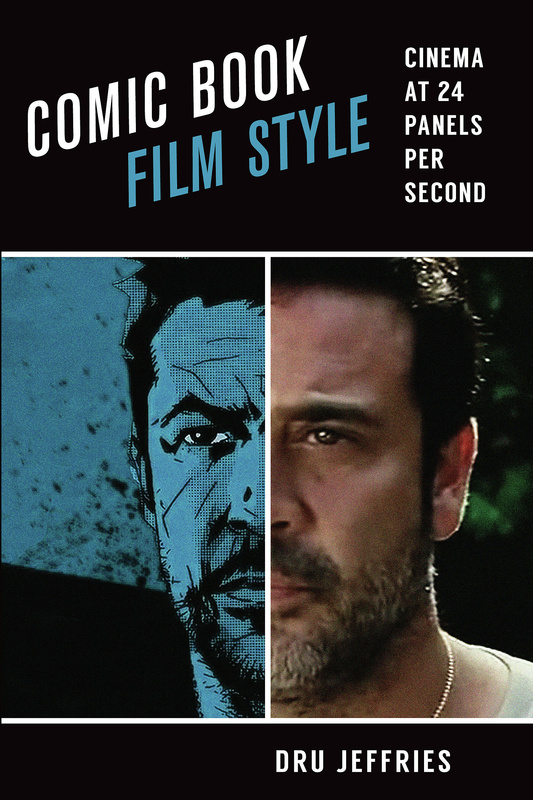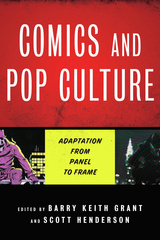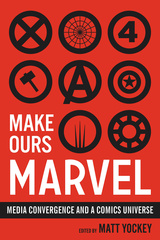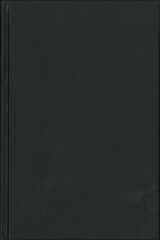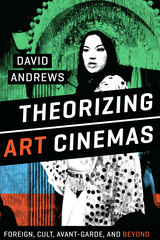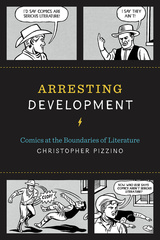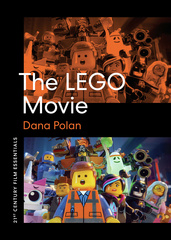Our shopping cart is currently down. To place an order, please contact our distributor, UTP Distribution, directly at utpbooks@utpress.utoronto.ca.
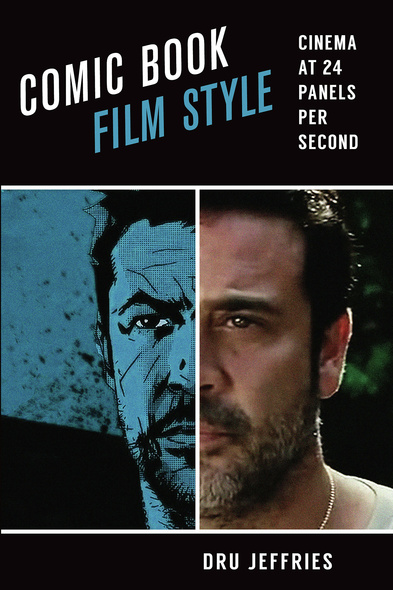
Superhero films and comic book adaptations dominate contemporary Hollywood filmmaking, and it is not just the storylines of these blockbuster spectacles that have been influenced by comics. The comic book medium itself has profoundly influenced how movies look and sound today, as well as how viewers approach them as texts. Comic Book Film Style explores how the unique conventions and formal structure of comic books have had a profound impact on film aesthetics, so that the different representational abilities of comics and film are put on simultaneous display in a cinematic work.
With close readings of films including Batman: The Movie, American Splendor, Superman, Hulk, Spider-Man 2, V for Vendetta, 300, Scott Pilgrim vs. the World, Watchmen, The Losers, and Creepshow, Dru Jeffries offers a new and more cogent definition of the comic book film as a stylistic approach rather than a genre, repositioning the study of comic book films from adaptation and genre studies to formal/stylistic analysis. He discusses how comic book films appropriate comics’ drawn imagery, vandalize the fourth wall with the use of graphic text, dissect the film frame into discrete panels, and treat time as a flexible construct rather than a fixed flow, among other things. This cinematic remediation of comic books’ formal structure and unique visual conventions, Jeffries asserts, fundamentally challenges the classical continuity paradigm and its contemporary variants, placing the comic book film at the forefront of stylistic experimentation in post-classical Hollywood.
Highly Recommended. With the emerging hegemony of the comic-book style in Hollywood adaptations, Jeffries astutely explores what he calls, repeatedly, the remediation of a particular aesthetic grounded in comics. . . [Comic Book Film Style] adds a fresh, provocative, illuminating voice to the ongoing negotiation of film style.
Comic Book Film Style is a well‐researched book that proves benefit to both scholars interested in in‐depth exploration of how comics have shaped our current film industry, as well as the lay researcher who has an interest in comics or film‐making and wants to learn more about how the two work together to create the current state of media in our society.
Comic Book Film Style extensively provides many new terms to explain the language of comics film style, from panel moments to compositional mimesis, and he follows each explanation with multiple examples, most of which include figures that directly visualize concepts at hand.
Thoughtful and erudite theorization of the impact of the comic book medium on contemporary cinema. The book offers a valuable critical vocabulary for understanding the relationship between comics and film and the emergence, and remediation of, a ‘comic book film style.’ This book is an important intervention in the study of film aesthetics, mise-en-scène, etc., and challenges proponents of so-called classical film style.
Original and engaging. Jeffries’s analysis of the cinematic remediation of comics provides strong insights into modern Hollywood comic book blockbuster cinema.
Dru Jeffries teaches comics studies at Wilfrid Laurier University and has taught film at Concordia University and the University of Toronto. He has published scholarship on film and comic books in Porn Studies, Quarterly Review of Film and Video, Cinephile, and several edited volumes.
- Acknowledgments
- Introduction
- Chapter 1. The Six Modes of Interaction between Comics and Film
- Chapter 2. Vandalizing the Fourth Wall: Word-Image Hybridity and a Comic Book Cinema of Attractions
- Chapter 3. These Panels Have Been Formatted to Fit Your Screen: Remediating the Comics Page through the Cinematic Frame
- Chapter 4. The Privileged Instant: Remediating Stasis as Movement
- Chapter 5. The Polymedial Comic Book Film
- Conclusion
- Notes
- Bibliography
- Index

